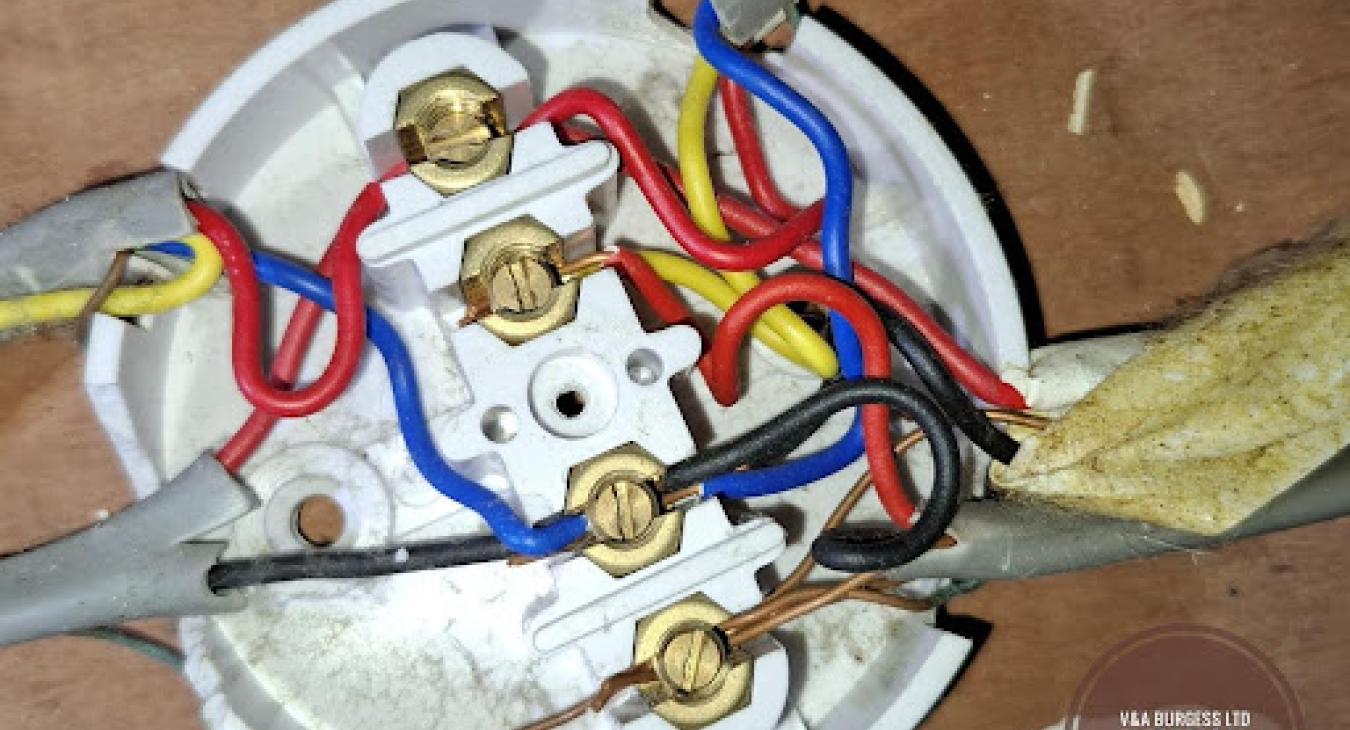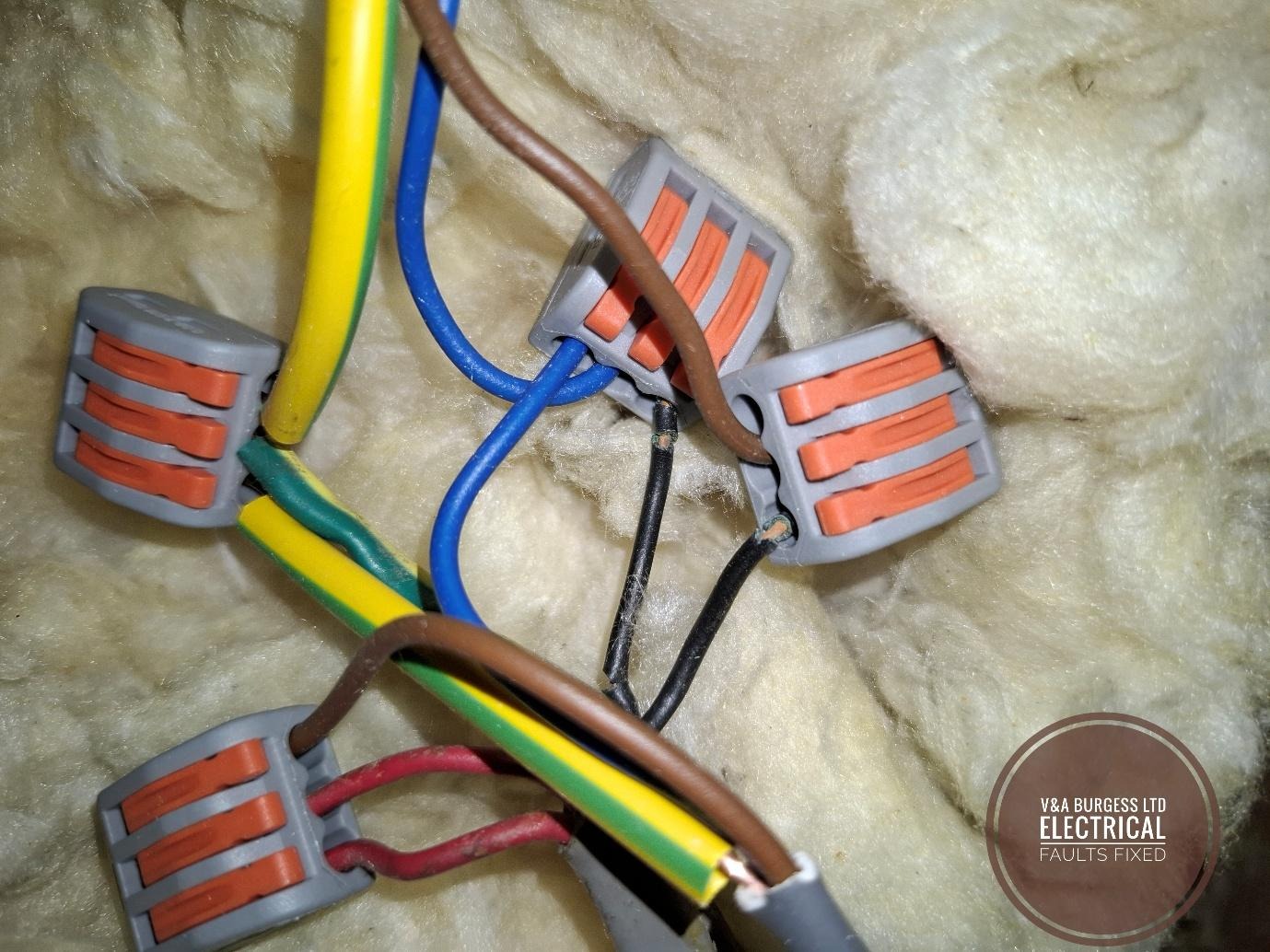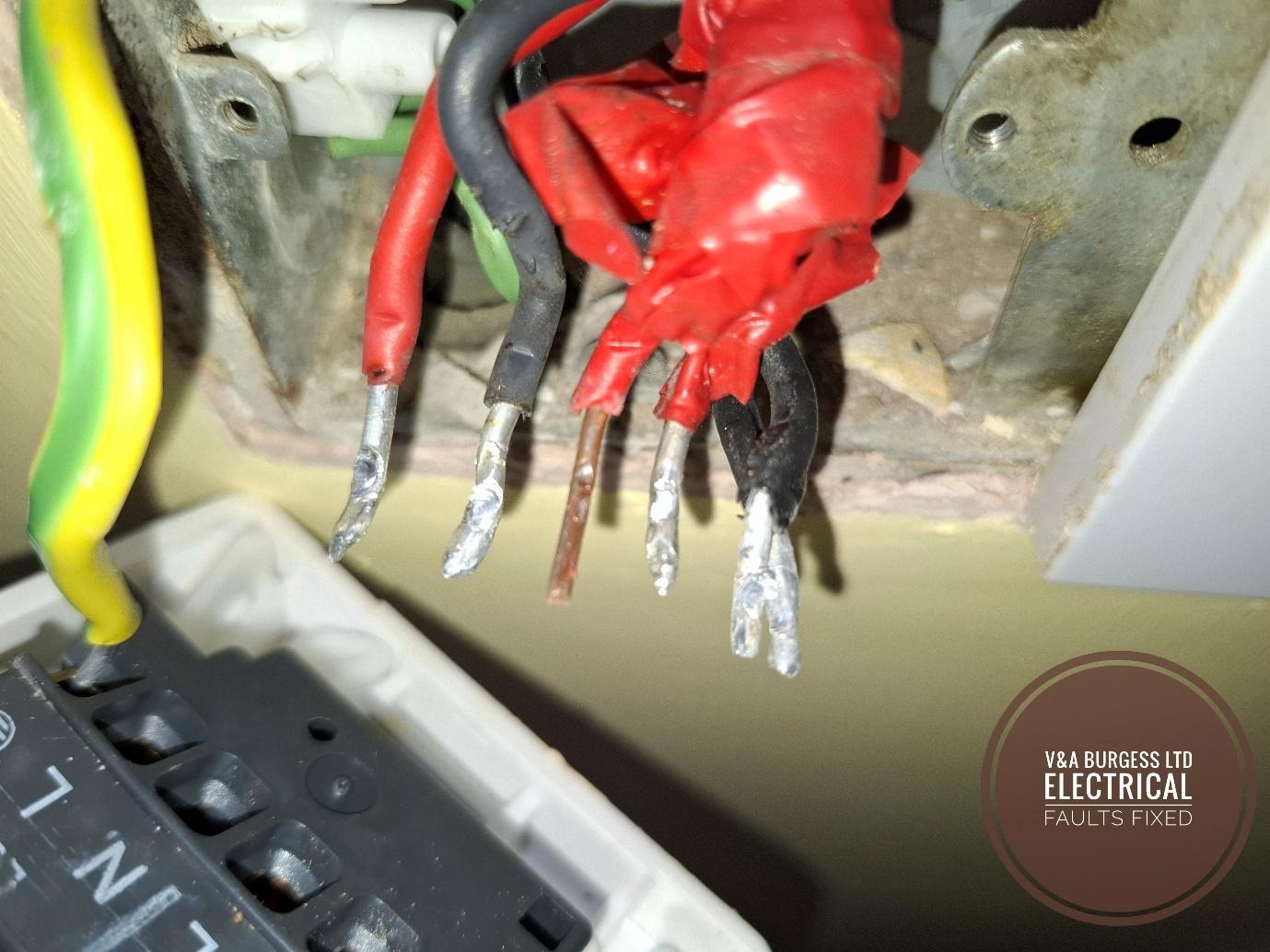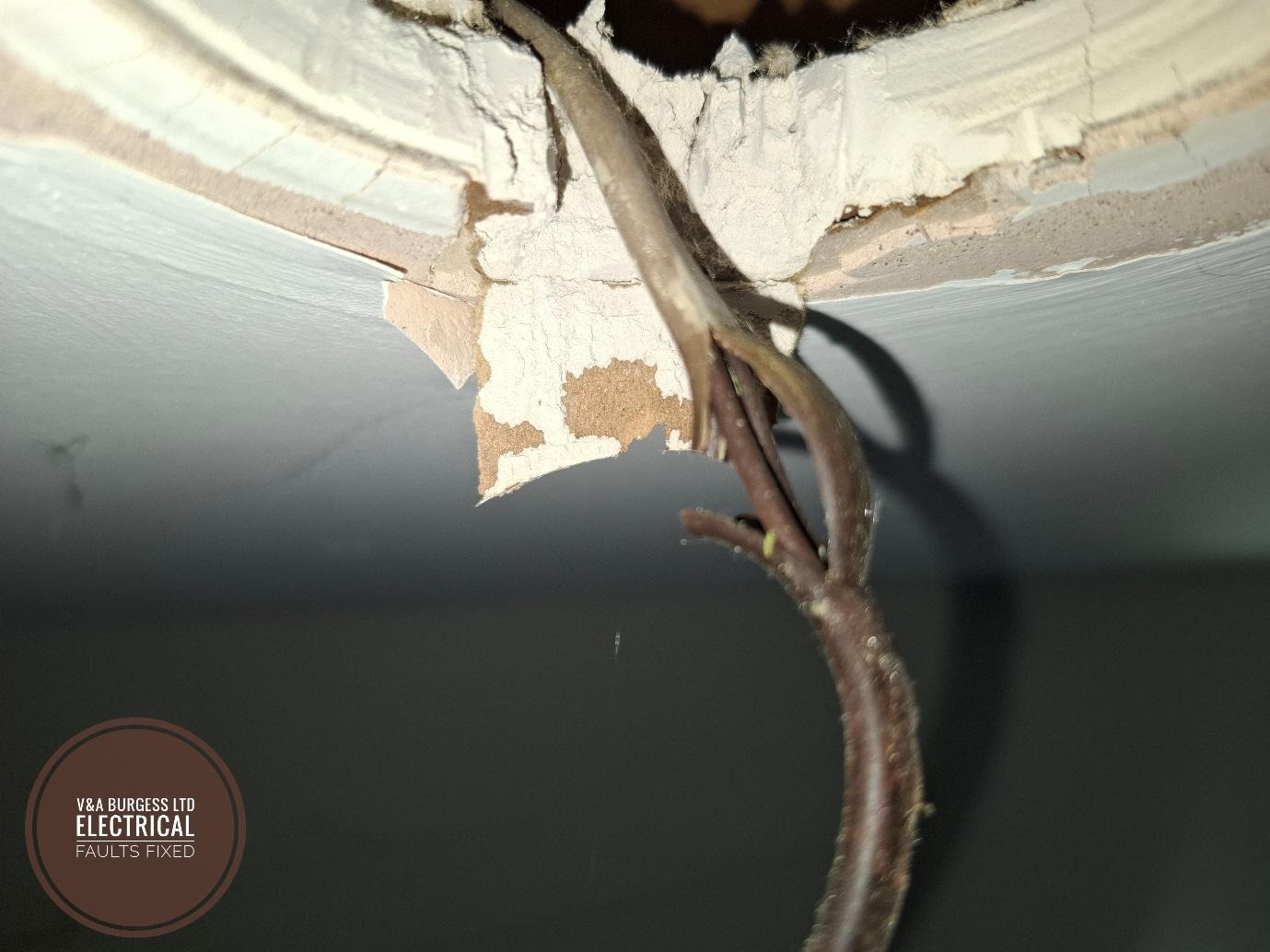Common problems causing electrical wiring to fail
What causes electrical wiring to fail exactly? There are a number of potential causes for electrical wiring failure but ultimately, electrical wiring fails due to insulation breakdown between the conductors in the cable. We will go into this in more detail below.
1) How does Electrical wiring work, Exactly?
In order to prevent short circuits, electrical wiring is covered in a material (usually flexible pvc) that prevents the copper conductors from touching each other. This insulation stops electrical current from passing from the Line (HOT) wire to the CPC (Ground or Earth) wire and from the Neutral to the Earth or Line wire. Should insulation breakdown occur then we are likely to see issues at the fuse box, breaker panel or consumer unit. Such issues could be circuit breakers tripping, fuses blowing or the operation of RCD / GFCI devices.
Back to top2) What are the 7 most common problems for failed wiring?
There are a number of factors that determine how long electrical wiring will last and when electrical failure will occur. Amongst these factors are some things that we can control and some that we cannot. Here is a list of situations that can cause premature failure of wiring or accelerate the deterioration of an electrical system.
- High Load on the cabling - Large powerful appliances used continuously can accelerate insulation breakdown on cabling.
- Installation Conditions - Poor environments such as moist, high heat, or very cold can all have a detrimental effect on wiring.
- Old Wiring - Where cabling is already old, it is more susceptible to damage from large electrical loads placed upon it.
- Poor Installation - Where wiring has been installed badly, under mechanical strain or otherwise in contravention of regulations, premature failure is more likely.
(Photo: Electrical Wiring Exposed and Non-Compliant)
- Rodent infestation - Rodents enjoy nibbling on electrical wiring and can cause massive damage to an electrical system in a short space of time.
- Original Quality - Most wiring is made to a minimum standard, but where electrical wiring is poorly manufactured, failure can occur much more quickly.
- Not enough circuits - A common issue in older homes where only one socket outlet circuit was installed leading to excessive loads being placed on wiring.
There are 11 signs that you need to call an electrician immediately and whilst DIY repairs can seem tempting, it’s best to seek professional assistance when wiring problems are occurring.
Back to top3) What are the Signs of Faulty Wiring?
Faulty wiring often has no obvious outwards symptoms and as such, this makes electrics quite dangerous! It’s important to look out for any of the following more obvious signs to determine if the home's electrical system requires professional intervention. These are some common signs of faulty electrical wiring.
- Flickering Lights - When lights flicker, it can be as a result of loose connections, failing switchgear or issues out in the street. Whatever the cause, have this checked out quickly!
- Funny smells - The first sign of electrical fires starting is overheating PVC insulation. The unusual odors resemble a fishy, plastic type chemical smell.
- Aluminum wiring - If you have aluminum (or aluminium in the UK) wiring, this should be replaced as a matter of urgency. This type of wiring is outdated and likely to be dangerous.
(Photo: Aluminium Wiring, Cramped and Dangerous)
- VIR Wiring - Vulcanised Indian Rubber wiring was installed into UK homes until around 1950. If this type of wiring is still in use, it is potentially very dangerous and should be rewired as soon as possible.
- Switches tripping regularly - Where wiring issues are present, the fuse box will blow fuses or electrical panel will trip GFCI breakers or RCDs.
- Lights dim - If when using appliances the lights in your home dim then this is a sign that there are serious issues that need professional inspection ASAP.
- Buzzing Sounds - Buzzing sounds can often also mean fire risks. The sound of electrical arcing can sometimes resemble a buzz and with it, a serious threat of fire.
Remember that not all potential hazards will show symptoms which is why it’s important to have a full electrical inspection carried out in your home at least every ten years by a professional electrician. A professional electrician will be able to inspect and test your wiring using specialised test equipment and expert knowledge to determine if there are any electrical issues that may be unseen. Modern homes should come with a new electrical certificate and should not need inspecting until the ten year mark.
Back to top4) Common Electrical Problems
As an emergency electrician, electrical lecturer and industry expert, I could list multiple problems that occur in modern electrical systems. There is a separate article for the most common problems with electrical installations but I would say that the top 5 issues that I receive calls for would be:
- Faulty Appliances - The customer complains of a trip switch problem which nearly always turns out to be a faulty appliance.
- Water in electrical - More often than not, after heavy rain, I will receive a phone call and the root cause is 90% of the time is water in electrical installations outdoors.
- Shower Failed - Electrical showers are incredibly powerful and put a great deal of stress on pull cord switches. This is the most common, non-emergency call out I receive in the UK.
- No Sockets Working - Customers often ring to tell me that they have no sockets working but lights are ok. This means that an RCD device has usually tripped.
- DIY mishaps - One of the most common calls if for DIY accidents. Failed light fitting installations, nails through a cable or some other disaster.
5) What is the worst thing for wiring?
One of the worst things for electrical wiring is improper installations. When your home's wiring is installed, you want the best contractor possible that will not cut corners on the installation and will use high quality products.
(Photo: Poorly Installed Lighting Leading to Burnt Cables)
The next worst thing is repeated resetting of trip switches. If a switch trips, THERE IS AN ELECTRICAL FAULT. The switch should not be reset continually. Continual resetting of the switch like this just leads to damaged wiring as your electrical system has to dispose of hundreds or even thousands of AMPS of electrical current as the breaker once again goes off with a bang.
Screw terminals and flexible cable are not compatible! Screw terminals will chew up flexible and finely stranded wiring leading to arcing, shorting out and headaches. Any fine stranded cables should be terminated into crimped ferrule connections to leave a solid end on the flex cable making for a much more secure connection which is less likely to fail over time.
Back to top6) Electrical Connections - A common failure
Over tightening and conversely, excessively loose connections are often a failure point. Both of these can lead to a loose wire connection over time. Often, manufacturers of electrical components, consumer units and switchgear will have a recommended torque setting for their connections which can be achieved by the use of a torque screwdriver. This means less damage through over tightening and minimised fire hazard from loose connections.
When connections are made improperly, current flow is not as it should be. Loose connections mean excessive resistance, impeded current flow and an electrical circuit that fails to perform as intended. The best course of action is to always hire a professional for electrical works to prevent issues with terminal connections, non- compliances with electrical regulations and minimized risk of electrical malfunctions.
Back to top7) Conclusion
There are many factors that can affect the lifespan of electrical systems and cause electrical wiring to fail prematurely. Poor wiring is not only a risk to you and your family's safety but can be the source of financial troubles as rewiring is EXPENSIVE! The best way of preventing premature wiring failure is to ensure you have old electrical wiring replaced when needed, use professional electricians and ensure that you have high quality products installed in your property.
When electrical repairs are needed, take immediate action to have them carried out and ensure that all electrical codes are followed to prevent future problems.
Back to top



